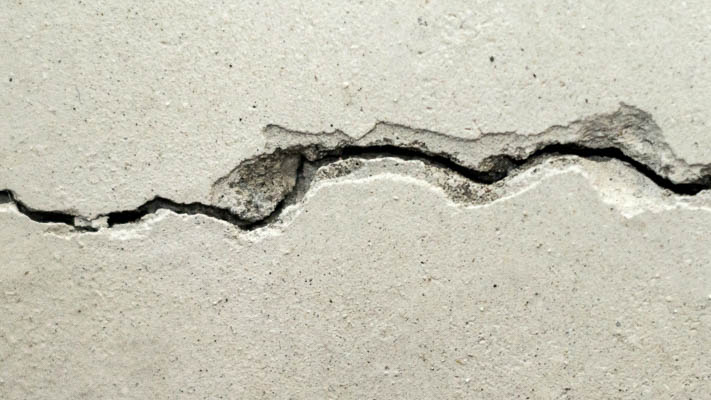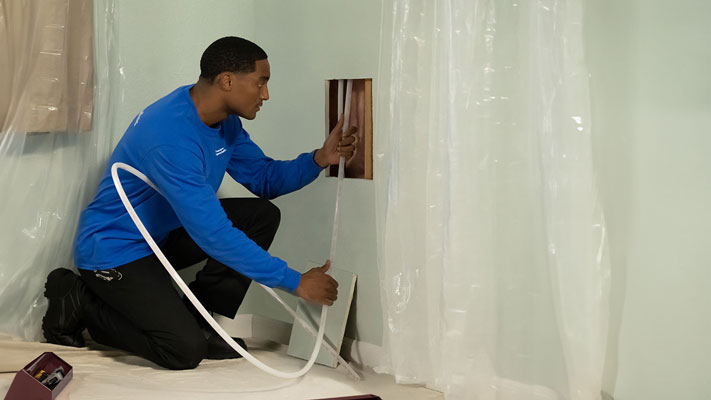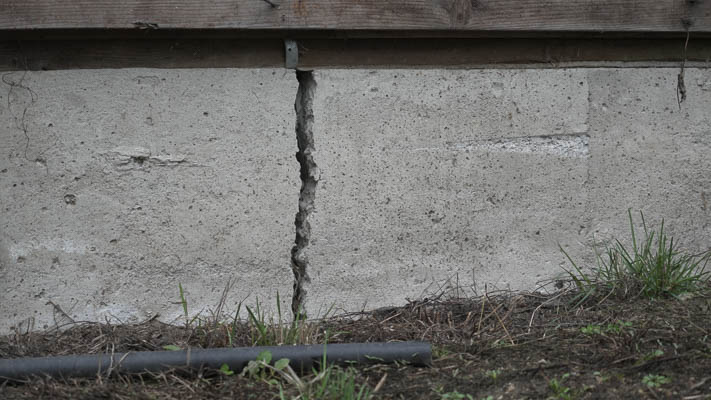What Causes Shifting Soil in Texas?
Soil movement is especially common in Texas due to the region's clay-heavy soils, particularly in the Blackland Prairie region. Texas's clay soil expands when wet and contracts significantly during dry spells, causing the ground beneath your home to shift, swell, or sink depending on the season.

This constant swelling and shrinking (often referred to as "soil heave" or "settling") can wreak havoc on a home's structural stability over time. Extended droughts followed by sudden heavy rains make the issue even worse, leading to movement under your home's foundation that's almost impossible to avoid.
Other contributing factors include poor drainage, tree root systems extracting moisture from the soil, and nearby construction that alters groundwater flow. All of these conditions can create pockets of instability under your slab, increasing the risk of structural cracks and pipe movement.
Warning Signs Your Home Has Shifting or Settling Soil
Shifting soil usually doesn't announce itself loudly at first. Instead, subtle changes around your home may hint at a larger problem forming beneath the surface.
Some of the most common early warning signs of soil-related foundation movement include:
- Small cracks forming in walls, especially above doors and windows
- Doors and windows that begin to stick or won't close properly
- Uneven or sloping floors
- Gaps between walls and ceilings or floors
- Cracks in exterior brickwork or concrete
If left unchecked, these small signs can turn into more serious structural issues. And while it may be tempting to chalk them up to a house "settling," they're often a signal that the soil beneath your home is shifting—causing stress on your foundation and pipes.
The longer these signs go ignored, the more likely it is that damage will spread to your home's plumbing system, leading to slab leaks or broken waste lines beneath the concrete foundation.
Can Shifting Soil Damage Pipes Beneath Your Home?
Absolutely. In fact, shifting soil is one of the leading causes of slab leaks in Texas homes. We have an article dedicated to why plumbing in Texas homes is prone to slab leaks.
As the soil moves, it puts pressure on the foundation—and the pipes running beneath it. Older pipes, particularly those made from outdated galvanized steel or brittle cast iron sewer pipes, are especially vulnerable.
Here's how it happens:
- As soil expands or contracts, it can push or pull on the slab.
- This movement transfers stress to the pipes anchored in or running through the slab.
- Over time, the pipes may crack, separate at joints, or even collapse.
This can lead to hidden leaks that saturate the soil under your home, further weakening the foundation and making the problem worse. In some cases, the water from leaking pipes can accelerate soil erosion, creating a feedback loop that causes more movement and more leaks.
Does Texas Homeowners Insurance Cover Shifting Soil Damage?
In most cases, Texas homeowners insurance policies do not cover damage caused by shifting or settling soil. This is especially common when the movement is due to natural causes like drought or seasonal changes. It is often classified as "earth movement," which is excluded under standard policies.
There are exceptions, but they tend to be limited:
- If the shifting soil causes a sudden, accidental event (like a burst pipe that leads to water damage), your policy may cover the resulting water damage—but not the source of the damage (i.e., the soil movement or pipe repair itself). For example, Liberty Mutual will cover damage from a pipe leak if it is considered "sudden or accidental."
- Some insurers offer optional add-ons or endorsements that specifically cover foundation damage or plumbing issues related to soil movement—but these must be purchased ahead of time.
It's important to carefully review your policy and speak with your insurer to understand what is and isn't included. Most homeowners are surprised to learn that common Texas conditions like drought and clay soil expansion aren't covered until after damage occurs.
This lack of coverage is a key reason many Texas homeowners consider preventative solutions like whole-home repiping, especially in areas known for shifting soil.
How Repiping Can Help Prevent Future Slab Leaks
If your Texas home has older pipes and is built on a slab foundation, repiping can be one of the most effective ways to prevent future damage caused by shifting soil.
At Repipe Specialists, we recommend repiping with flexible materials like Uponor PEX-A tubing, which can better withstand movement than rigid materials like galvanized steel. We reroute your plumbing through walls and attic spaces, bypassing the slab entirely. So, even if the soil beneath your home continues to move, your pipes remain protected.
Repiping also means fewer leaks and a lower risk of sudden plumbing failures. New piping systems eliminate the weak points found in older, corroding materials, helping prevent unexpected water damage.

Many homeowners also notice a big improvement in water pressure and flow. Replacing aging pipes clears out built-up debris and corrosion, allowing water to move more freely through the system. And finally, there's the peace of mind knowing your pipes are no longer buried in or under the slab, so you don't have to worry about soil movement causing another slab leak or hidden pipe failure.
In areas of Texas where soil movement is common, upgrading your plumbing system is one of the most reliable ways to break the cycle of slab leaks and expensive repairs. Contact us to have one of our local repipe consultants explain all your Texas repipe options during a free in-home or remote consultation.
Get your free estimate today
With over 75,000 repipes completed, we've perfected our One-Stop Repipe™ for your home.
Get a Free Quote to Permanently Repair Slab Leaks
Here at Repipe Specialists, we've completed thousands of slab leak repipes across Texas, rerouting the home's plumbing through walls and ceilings to eliminate the possibility of slab leaks caused by shifting soil. We also consistently receive positive feedback from customers about their overall home repipe experiences and often exceed their expectations in the following areas:
- Speed: Our repipe crews typically complete a repipe in a day, returning on another day for wall patching.
- Convenience: Through our One-Stop Repipe™ Process, we handle everything from permits, to wall patching, to inspections.
- Cleanliness: Our crews are trained to protect your home while working (we cover all surfaces with protective sheeting), and to clean up fully at the end of each day.
- Peace of Mind: Repipe Specialists is a fully licensed plumber in every state we operate in, and we back all of our repipes with a lifetime warranty.
- Financing programs: To help take the sting out of unplanned repipe expenses, we offer several financing programs.
- Price: As a specialist that performs hundreds of repipes a week, we can deliver high quality repipes at a lower cost vs generalist plumbers. A complete repipe typically ranges from $4,500 to $15,000, depending on the size of your home. We have an article that covers repipe cost factors in detail.
Schedule a free in-home consult, and one of our local repipe consultants will explain all your repipe options and provide you with a written, fixed-price quote. Repipe and avoid slab leaks caused by shifting soil forever.

